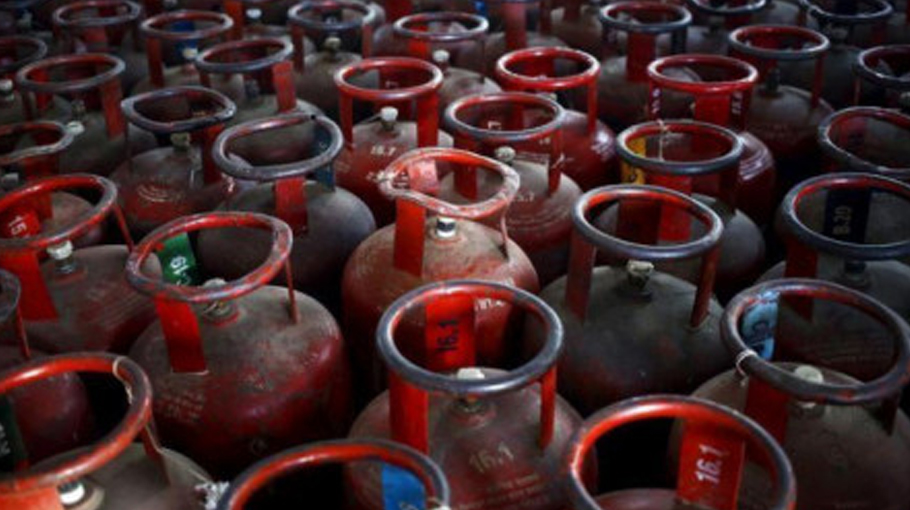LPG prices rise further

The price of LPG has been continuously increasing for the last 7 months. The beginning of the new year rings in further woes for consumers in Bangladesh as liquefied petroleum gas (LPG) prices continue their relentless upward trajectory.
As of the latest adjustment, consumers are now burdened with an additional Tk 41 per 12 kg cylinder, propelling the price to Tk 1,474 from the previous Tk 1,433. This marks the seventh consecutive month of price hikes, signalling a dire situation for consumers grappling with escalating living costs.
In a reflection of the ongoing turmoil, the past year saw prices surge in February, May, August, September, October, November, and December. The latest adjustment amplifies the challenges faced by consumers, with prices for various cylinder sizes now ranging from Tk 676 for 5.5 kg, Tk1,474 for 12kg, Tk 1,536 for 12.5 kg, Tk 1,843 for 15 kg, Tk 1,966 for 16 kg, Tk 2,211 for 18 kg, Tk 2,457 for 20 kg, and Tk 2,703 for 22 kg. The fixed price for 25 kg of 3,072; 30 kg of 3,686, 33 kg of 4,054, 35 kg of 4,300, and 45 kg of bottled LPG is 5,529 taka.
The private LPG retail point (consumer level) price has been adjusted by 122 takas 86 paise per kg, including VAT, as announced by the release. Additionally, a 119 taka 04 paisa adjustment has been made to the price of private LPG supplied in liquid state in the reticulated system, including VAT. The price of motor vehicles has been increased to 67 takas and 68 paise per litre, inclusive VAT, for consumers.
A press release signed by BERC Secretary Rezaul Karim Khan Khan states that it is strictly forbidden to sell for more than the announced price in any situation.
Dr Md Helal Uddin, NDC Member (Gas), Bangladesh Energy Regulatory Commission told Bangladesh Post on Sunday that the price of LPG is rising every week in the global market, and is not favourable. Pricing must be managed by the commission to stay up with the market's rapid pace.
“Indeed, price increases are always bad news for the general public, and regrettably, we are raising the price consecutively,” Uddin acknowledged. The good news, he added, is that LNG prices are gradually declining on the global market, which suggests that LPG prices will soon stabilize and decline.
According to experts, the LPG industry in Bangladesh has encountered numerous challenges, compounded by global economic uncertainties stemming from the Russia-Ukraine conflict and the aftermath of the COVID-19 pandemic. Import forecasts for 2024 indicate a potential decline compared to the previous year, reflecting subdued demand amid economic instability.
Despite efforts to foster growth, regulatory hurdles and policy constraints hamper the industry's potential. The current framework imposes cumbersome approval processes, hindering widespread compliance and effective regulation. Moreover, inadequate surveillance mechanisms contribute to lax enforcement, posing safety risks and regulatory lapses.
Experts emphasize the imperative of policy reform to streamline operations and enhance safety standards. Simplified approval procedures and enhanced surveillance measures are essential to mitigate risks and ensure regulatory compliance across the LPG supply chain.
Furthermore, the economic slowdown and currency fluctuations exacerbate challenges for LPG businesses, jeopardizing supply chains and financial viability. Urgent interventions, including streamlined LC transmission and favourable exchange rate policies, are warranted to safeguard the industry's stability and mitigate adverse impacts.
Addressing systemic inefficiencies and fostering collaboration among stakeholders is paramount to navigating the evolving landscape of the LPG sector. Concerted efforts to address regulatory gaps and promote industry resilience are essential to mitigate risks and sustainably meet consumer demand.
Sources said the market size of the LPG industry in Bangladesh is $3.2 billion. However, more than 98 per cent of this industry is dependent on imports. In 2022, Bangladesh witnessed a significant import of approximately 1.4 million metric tonnes of liquefied petroleum gas (LPG).
Based on the analysis conducted by numerous industry experts, it is anticipated that the LPG market has the potential to experience rapid growth, with the demand expected to reach approximately 3.0 million metric tonnes by the year 2030.
Proactive measures and strategic interventions are imperative to safeguard consumer interests and ensure the long-term viability of the LPG sector in Bangladesh. Collaborative initiatives involving government agencies, industry stakeholders, and financial institutions are essential to address systemic challenges and foster a conducive environment for sustainable growth.




